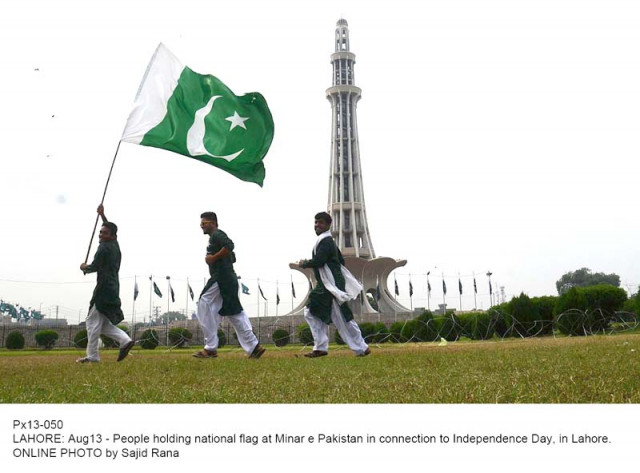What is needed to strengthen democracy?
Failure is not an option as this would lead to a setback to democracy

Failure is not an option as this would lead to a setback to democracy. PHOTO: ONLINE
The irony is that Pakistan is passing through one of its worst economic crises and facing genuine external threats. On the one hand, Imran Khan and his party leadership talks of change, eliminating corruption and engaging in pursuits that are only legal and constitutional, but on the other, they have been actively supporting or deliberately overlooking these unethical political machinations in the Senate. It would not be incorrect to say that it was not only the opposition, but also the government that is responsible for the Senate voting fiasco.
What is generally not understood is that political disunity bordering on chaos is fully exploited by India and other adversarial forces.
Improvement in our bilateral relations with India, although unlikely in the foreseeable future, and greater confidence and mutual respect between the Afghan and Pakistani leadership, should contribute to strengthening the democratic government and democracy in general.
The insurgency in Balochistan that has been going on for years has sapped the energy of its people. It has compounded the provincial government’s problems besides reducing its power — which from the beginning has been weakest among the provinces.
Pakistan’s involvement in Afghanistan, the lingering dispute of Kashmir and our adversarial relations with India in general have contributed towards giving the military great prominence and a major role in state affairs. Foreign powers, especially the US and China, have found it more convenient to deal directly with a military leadership than a weak civilian leadership, thereby further reinforcing their power. A classic illustration of it is the manner the US Special Representative of Afghanistan engages with the military command for facilitating negotiations with the Afghan Taliban.
The Prime Minister may be holding frequent cabinet meetings, but while taking important and sensitive decisions on national, regional and international issues, the views of the military leadership carry the maximum weightage. This has become such a common practice and gained acceptability that the over-used refrain is that the military and civilian leadership is on the same page.
Lack of genuine interest in the functioning of Parliament by Prime Minister Imran Khan and his predecessor has also weakened democracy. With a few exceptions, the parliamentary committees that are supposed to play a major role in strengthening governance through oversight and useful recommendations have ceased to be that active. The blame for this has to be shared by both the government and the opposition.
Intense personalisation of politics is further weakening democracy. No doubt personalities matter, and their conduct, reputation and ability of the leaders are an essential element of politics. But decisions of national and international importance cannot be taken without being seriously discussed in Parliament and the cabinet.
A preeminent focus on security due to our highly-strained relations with India, the turbulent situation in Afghanistan, and insurgency in parts of the country has deprived the country of focusing on its people and strengthening of institutions.
The role of the judiciary is critical in governance and promoting democracy. It is very encouraging that Chief Justice Asif Saeed Khosa is introducing major reforms and practices and prioritising improving the efficiency of the courts. Hopefully, the courts would be watchful about issues of human rights and independence of the judiciary. This would be a major factor in strengthening democracy.
Bureaucracy in Pakistan also needs to undergo major internal reforms. Its functioning should be compatible with the demands of modern times. Far too much of political interference and personal likes and dislikes of politicians along with the fear of the National Accountability Bureau (NAB) have largely strangled their competence.
Sufficient attention has not been given to the development of civil society. As a consequence, awareness in public about their rights and responsibilities remains vague. Lately, the restrictions being placed on the media will have adverse consequences. Our government and establishment should encourage and promote diversity instead of considering it as a threat.
For Pakistan to modernise and play an active role in the region and the world, the government’s primary focus on reviving the economy is correct. However, pursuing the right policies and adhering to the IMF programme remains the foremost challenge for the government. On the contrary, its efforts at strengthening parliamentary democracy remain weak and a victim of petty rivalries. In this effort and also in matters of national economy, the role of the opposition is equally important. Unfortunately, the opposition is more occupied in fighting cases of its leaders rather than give attention to serious national issues. Failure is not an option as this would lead to a setback to democracy and accountability resulting in corruption becoming more widespread and gap between the rich and the poor increasing with serious implications for the stability of the state.
Published in The Express Tribune, August 7th, 2019.
Like Opinion & Editorial on Facebook, follow @ETOpEd on Twitter to receive all updates on all our daily pieces.












1724319076-0/Untitled-design-(5)1724319076-0-208x130.webp)


COMMENTS
Comments are moderated and generally will be posted if they are on-topic and not abusive.
For more information, please see our Comments FAQ